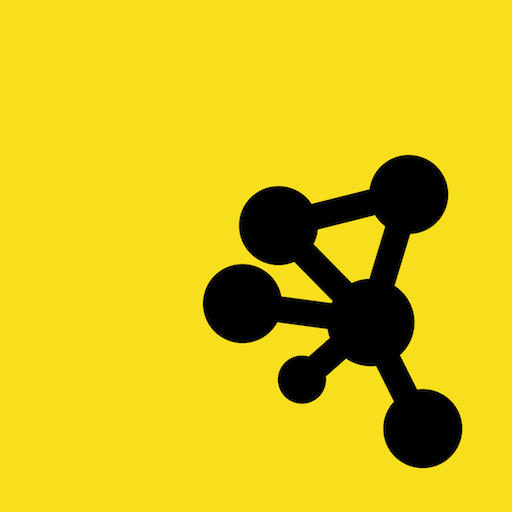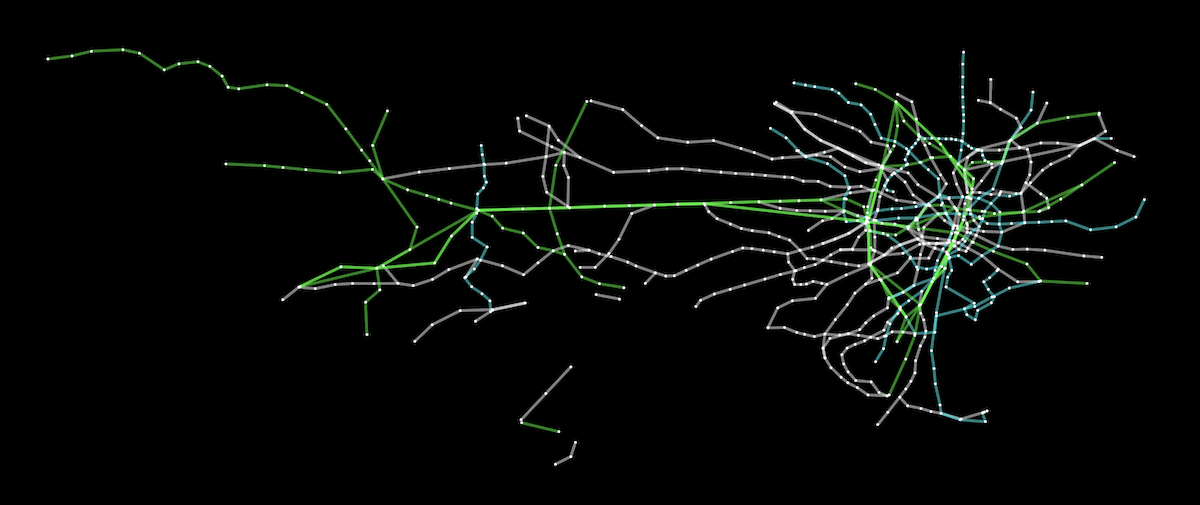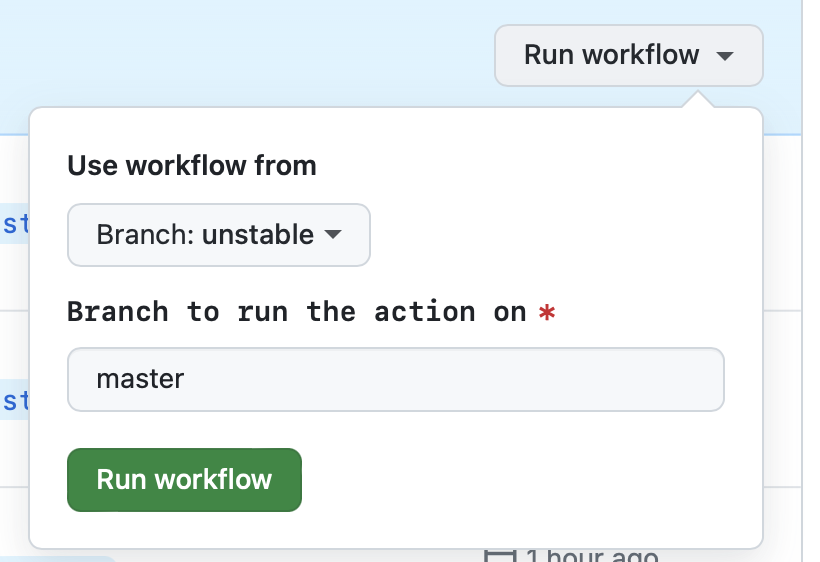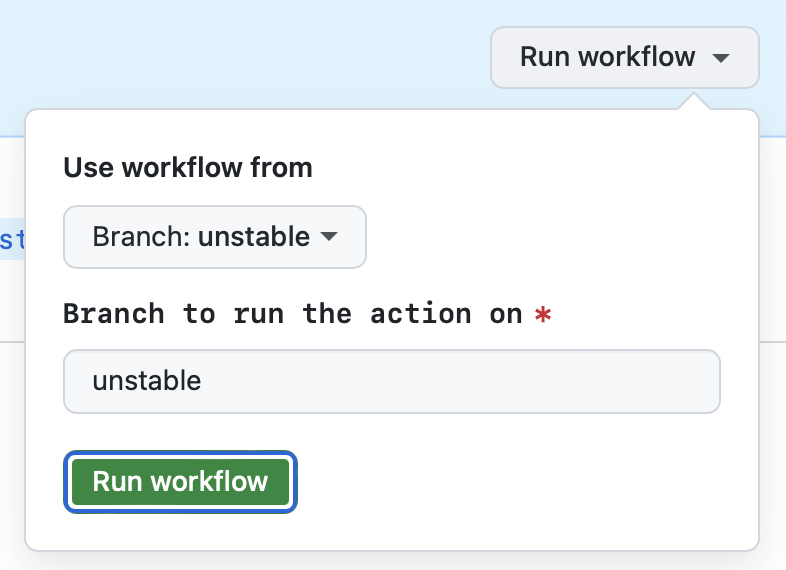Gathering detailed insights and metrics for cytoscape
Gathering detailed insights and metrics for cytoscape
Gathering detailed insights and metrics for cytoscape
Gathering detailed insights and metrics for cytoscape
Graph theory (network) library for visualisation and analysis
npm install cytoscapeModule System
Min. Node Version
Typescript Support
Node Version
NPM Version
10,135 Stars
6,117 Commits
1,636 Forks
225 Watching
60 Branches
143 Contributors
Updated on 28 Nov 2024
Minified
Minified + Gzipped
JavaScript (99.46%)
HTML (0.39%)
CSS (0.15%)
Cumulative downloads
Total Downloads
Last day
0.4%
166,645
Compared to previous day
Last week
3.7%
895,541
Compared to previous week
Last month
10.1%
3,755,484
Compared to previous month
Last year
158.8%
33,926,758
Compared to previous year
29

Created at the University of Toronto and published in Oxford Bioinformatics (2016, 2023).
Authored by: Max Franz, Christian Lopes, Dylan Fong, Mike Kucera, ..., Gary Bader
Graph theory (network) library for visualisation and analysis : https://js.cytoscape.org
Cytoscape.js is a fully featured graph theory library. Do you need to model and/or visualise relational data, like biological data or social networks? If so, Cytoscape.js is just what you need.
Cytoscape.js contains a graph theory model and an optional renderer to display interactive graphs. This library was designed to make it as easy as possible for programmers and scientists to use graph theory in their apps, whether it's for server-side analysis in a Node.js app or for a rich user interface.
You can get started with Cytoscape.js with one line:
1var cy = cytoscape({ elements: myElements, container: myDiv });
Learn more about the features of Cytoscape.js by reading its documentation.
The Tokyo railway stations network can be visualised with Cytoscape:


A live demo and source code are available for the Tokyo railway stations graph. More demos are available in the documentation.
You can find the documentation and downloads on the project website.
Future versions of Cytoscape.js are planned in the milestones of the Github issue tracker. You can use the milestones to see what's currently planned for future releases.
Would you like to become a Cytoscape.js contributor? You can contribute in technical roles (e.g. features, testing) or non-technical roles (e.g. documentation, outreach), depending on your interests. Get in touch with us by posting a GitHub discussion.
For the mechanics of contributing a pull request, refer to CONTRIBUTING.md.
Feature releases are made monthly, while patch releases are made weekly. This allows for rapid releases of first- and third-party contributions.
To cite Cytoscape.js in a paper, please cite the Oxford Bioinformatics issue:
Cytoscape.js: a graph theory library for visualisation and analysis
Franz M, Lopes CT, Huck G, Dong Y, Sumer O, Bader GD
Bioinformatics (2016) 32 (2): 309-311 first published online September 28, 2015 doi:10.1093/bioinformatics/btv557 (PDF)
Install node and npm. Run npm install before using npm run.
Run npm run <target> in the console. The main targets are:
Building:
build: do all builds of the library (umd, min, umd, esm)build:min : do the unminified build with bundled dependencies (for simple html pages, good for novices)build:umd : do the umd (cjs/amd/globals) buildbuild:esm : do the esm (ES 2015 modules) buildclean : clean the build directorydocs : build the docs into documentationrelease : build all release artifactswatch : automatically build lib for debugging (with sourcemap, no babel, very quick)
debug/index.htmlhttp://localhost:8080 or the first available port thereafter, with livereload on debug/index.htmlwatch:babel : automatically build lib for debugging (with sourcemap, with babel, a bit slower)
http://localhost:8080 or the first available port thereafter, with livereload on debug/index.htmlwatch:umd : automatically build prod umd bundle (no sourcemap, with babel)
"cytoscape": "file:./path/to/cytoscape" reference in your project's package.json)dist : update the distribution js for npm etc.Testing:
The default test scripts run directly against the source code. Tests can alternatively be run on a built bundle. The library can be built on node>=6, but the library's bundle can be tested on node>=0.10.
test : run all testing & lintingtest:js : run the mocha tests on the public API of the lib (directly on source files)
npm run test:js -- -g "my test name" runs tests on only the matching test casestest:build : run the mocha tests on the public API of the lib (on a built bundle)
npm run build should be run beforehand on a recent version of nodenpm run test:build -- -g "my test name" runs build tests on only the matching test casestest:modules : run unit tests on private, internal API
npm run test:modules -- -g "my test name" runs modules tests on only the matching test caseslint : lint the js sources via eslintbenchmark : run all benchmarksbenchmark:single : run benchmarks only for the suite specified in benchmark/singlemaster and unstable branches. PRs can go on either branch, with the patch applied to the other branch after merging.

Mocha tests are found in the test directory. The tests can be run in the browser or they can be run via Node.js (npm run test:js).

No vulnerabilities found.
Reason
26 commit(s) and 5 issue activity found in the last 90 days -- score normalized to 10
Reason
no dangerous workflow patterns detected
Reason
no binaries found in the repo
Reason
license file detected
Details
Reason
packaging workflow detected
Details
Reason
security policy file detected
Details
Reason
Found 4/17 approved changesets -- score normalized to 2
Reason
no effort to earn an OpenSSF best practices badge detected
Reason
detected GitHub workflow tokens with excessive permissions
Details
Reason
dependency not pinned by hash detected -- score normalized to 0
Details
Reason
branch protection not enabled on development/release branches
Details
Reason
project is not fuzzed
Details
Reason
SAST tool is not run on all commits -- score normalized to 0
Details
Reason
13 existing vulnerabilities detected
Details
Score
Last Scanned on 2024-11-25
The Open Source Security Foundation is a cross-industry collaboration to improve the security of open source software (OSS). The Scorecard provides security health metrics for open source projects.
Learn More